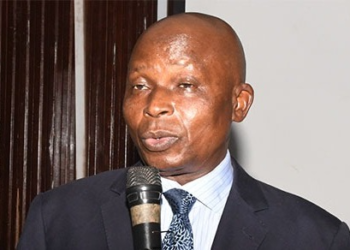The Attorney-General of the Federation, (AGF) Mr Lateef Fagbemi, SAN has described late former Chief Judge of the Federal High Court, Justice Daniel Abutu as an erudite jurist who laid a foundation for the 2010 doctrine of necessity.
Fagbemi made this known on Tuesday in Abuja at the valedictory court session in honour of the late former chief judge.
The News Agency of Nigeria NAN recalls that the doctrine of necessity came about in 2010 following a tense constitutional crisis over the non-transmission of presidential powers to the then Vice President, Goodluck Jonathan by the then ailing President, Umaru Yaradua.
The AGF who was represented by Mr Tijani Gazali, SAN, Director of Civil Appeals in the ministry said that the jurist helped in shaping Nigeria’s jurisprudence by that act.
“The late erudite jurist not only contributed his quota in the sustenance of legal education and constitutional democracy but his lordship also shaped our jurisprudence as a courageous judge, patriot and true nationalist.
“In January 2010, while the nation was witnessing tensed constitutional crisis over the non-transition of presidential powers to the then vice president by the ailing late president, Justice Abutu was called upon to interpret Section 145 of the 1999 Constitution.
“His lordship rendered concise decision in a timely manner over multiple cases seeking to compel the president to transmit a written notification to the National Assembly.
“His lordship doused the growing tension by interpreting Section 145 of the 1999 Constitution to mean that the president cannot be compelled to transmit notice.
“That is, the president cannot be compelled to surrender or abdicate presidential powers without following procedures set out in the constitution,” Fagbemi said.
He said it was based on this foundation that the National Assembly made the historic invocation of the doctrine of necessity through which the acting president was conferred with full powers of the president and commander-in-chief.
According to him, the foregoing development also spurred further legislative action to prevent a reoccurrence of such constitutional lacuna through the alteration that introduced Section 145(2) of the constitution.
Also speaking, the Chief Judge, (CJ) of the Federal High Court, Justice John Tsoho described the late former chief judge as an impartial judge who left behind a legacy of extreme humility.
According to Tsoho, Abutu lived a private but silently impactful life and has left a lasting legacy of extreme humility, joviality, kindness and compassion and always willing to extend a helping hand.
The CJ also said that the late Abutu’s tenure as chief judge may have been short but it was very eventful.
“He presided over several cases where his impartiality, wisdom and unwavering commitment to the law were brought to fore.
“He navigated complex legal issues with clarity and fairness, warning the respect and admiration of his colleague, lawyers, litigants and staff of the court.
“He ensured that the court family was kept united and focused and it was during his tenure that the Lokoja judicial division was opened,” Tsoho said.
A former chief judge of the court, Roseline Ukeje, who spoke at the valedictory court session said that the late Abutu was an embodiment of professionalism.
“His judgements were always lucid, well thought through, well articulated, filled with knowledge of law, blind to partisanship and entrenched in the delivery of justice,” she said.
For his part, the President of the Nigerian Bar Association, (NBA) Mr Afam Osigwe, SAN eulogised the late chief judge saying that he was fearless, independent and devoted to the constitution.
According to Osigwe, his courtroom was not only a place of adjudication, it was also a forum of education for counsel, litigants and the wider public.
“His judgments were marked by clarity, depth and fidelity to precedent, yet he was never afraid to blaze a new trail when justice was demanded.
Citing a few of the late jurist”s judgment, Osigwe said that such cases were a part of his indelible contribution to Nigeria’s legal history.
” His decisions have continued to be cited with approval forming part of the scaffold upon which the court’s jurisprudence stands,” Osigwe said.
Speaking on behalf of the Body of Senior Advocates of Nigeria, Mr Kanu Agabi, SAN, said that Abutu was a very dedicated, hard working, humble and jovial jurist.
He urged judicial officers to emulate the late jurist and be bold and committed to their duties.
He also called on Nigerians to celebrate judges while they were still alive and not wait to eulogise them in death saying not all judges were bad.
NAN reports that Abutu was appointed chief judge of the court on Nov. 11, 2009 where he retired on March 15, 2011 upon attaining the then mandatory retirement age of 65 years.
NAN further reports that he was born on March 15, 1946 and died on June 3 at the age of 79.(NAN)





















